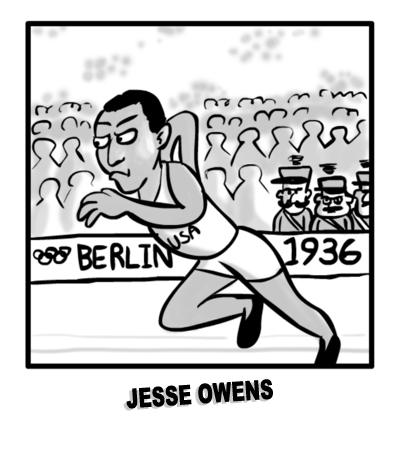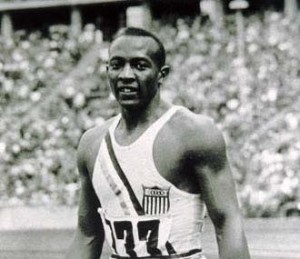Jesse Owens: A Triumph at the 1936 Berlin Olympics Comments Off on Jesse Owens: A Triumph at the 1936 Berlin Olympics
Jesse Owens’ performance at the 1936 Summer Olympics in Berlin remains one of the most significant and memorable moments in sports history. Against the backdrop of Nazi propaganda and racial tension, Owens not only showcased extraordinary athletic prowess but also delivered a powerful blow to Adolf Hitler’s ideology of Aryan supremacy. This article delves into Owens’ remarkable achievements in Berlin, the context of the era, and the lasting impact of his victories.
Background and Context
The 1936 Summer Olympics, held in Berlin, Germany, were intended by Adolf Hitler and the Nazi regime to be a showcase of Aryan superiority. The games were heavily propagandized, with the Nazis aiming to demonstrate the dominance of the “master race.” However, the stage was set for an African American athlete from Alabama to challenge and ultimately dismantle these notions through sheer athletic excellence.
James Cleveland “Jesse” Owens was born on September 12, 1913, in Oakville, Alabama. Growing up in a segregated America, Owens faced significant racial discrimination but found solace and opportunity in athletics. His talent was evident from a young age, and he went on to set multiple world records in high school and at Ohio State University. By the time the Berlin Olympics arrived, Owens was already a formidable competitor on the international stage.
The Olympic Games
100 Meters Dash
The 100 meters dash was the first event in which Owens competed, and he quickly set the tone for his Olympic campaign. On August 3, 1936, Owens won the gold medal with a time of 10.3 seconds, tying the world record. His victory was a direct challenge to the Nazi propaganda, as he bested Germany’s own athletes in front of Hitler and a partisan crowd.
Read the rest of this entry →

